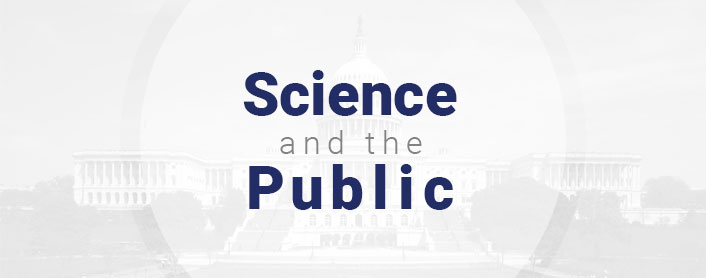
Undergraduate Certificates
Two unique pathways for exploring science or tech policy at Duke. These Certificate Programs afford a distinctive, interdisciplinary approach to a subject matter that is not available within any single academic unit. Learn more about Duke's Undergraduate Certificates.The Initiative for Science & Society offers two certificate programs for undergraduates. The interdisciplinary curricula of both certificates enable students enables students to understand the social, legal, historical, and policy issues stemming from advances in basic, applied sciences, and technology. Learn more about Duke’s Undergraduate Certificates.

The Certificate in Science and the Public (SatP) Certificate Program is an undergraduate, interdisciplinary course of study that focuses on empirical sciences and technologies and their impact on society. The certificate’s interdisciplinary curriculum enables students pursuing a wide range of majors and minors to understand the underpinnings of science (that is, any and all data-rich human endeavors) and their impact on the world in which we live. In earning the certificate, students learn how to integrate different perspectives, consider ethical and policy issues, and address the societal implications of developments in science and technology in a multitude of realms.
The curricular gap our certificate fills is, at its simplest, “science in context,” which we interpret in at least three ways:
- Science in practice
- Science’s rationale made clear
- Science’s dynamic opportunities and challenges

The Digital Intelligence Certificate (DQ) is an undergraduate, interdisciplinary course of study that equips students to develop foundational knowledge in computational technologies and their relationship to society. The interdisciplinary curriculum will guide students through a robust, thoughtful, and critical course of study of technology and its implications for individuals and society.
In earning the proposed Certificate, students will gain a foundational understanding of contemporary and emerging computational thinking, which will be customized for different pathways to suit individual students’ interests, and may include topics such as artificial intelligence, cybersecurity, web/mobile technologies, databases and software engineering. They will also study the ethical, legal, social and policy frameworks needed to understand the complex ways in which these technologies impact society. Students who complete the Digital Intelligence Certificate will be prepared to thoughtfully and ethically create, deploy, manage and critique emerging computational technologies in their chosen field of work.
Have Questions?
Enrollment and program requirements are listed on each program’s page. Submit the form below if you still have questions and S&S faculty or staff will be in touch.
Certficate Contacts
Science and the Public Certificate
Misha Angrist, PhD
misha.angrist@duke.edu
Certificate Director
919.684.2872
Digital Intelligence Certificate
Sarah Rispin-Sedlak
sarah.rispin.sedlak@duke.edu
Digital Intelligence Faculty Lead

